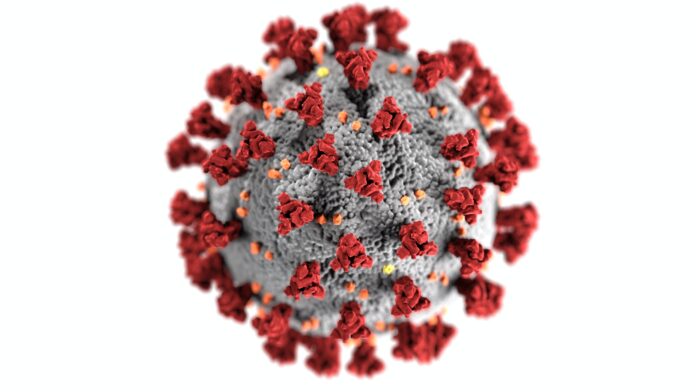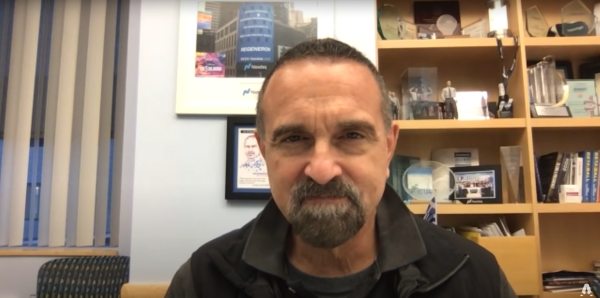
The most prevalent strain of COVID-19, the omicron variant, has been dominating the world’s news cycle for weeks, as it’s spread grows larger and larger. But what is the actual difference between Omicron and the original coronavirus strain that showed up in 2019?
By Cori Zaragoza, Staff Writer
HOW COVID WORKS
In a December 2021 episode of Neil deGrasse Tyson’s online show called “Startalk”, Tyson interviews the president of Regeneron, a maker of the antibody monoclonal treatments used for COVID-19, on how the COVID-19 virus works to infect others.

The president of Regeneron, George Yancopoulos, explained that the way viruses like COVID-19 work is they use a host to make many copies of themselves that they then spread out through our secretions, such as the droplets of moisture we let out when we cough. The virus makes copies by anchoring a “spike” protein into human cells, and proceeds to make millions and millions of copies of itself, which is when an infection starts.
“Spike is a great word for these structures that are on the surface of the virus and they are what digs into the human cell and allows the virus to burrow into that cell and fertilize itself, plant itself, and make many copies,” Yancopoulos said.

According to Yancopolous, the way COVID-19 vaccine and antibody monoclonal treatments provide antibodies, which are our bodies natural defenses against infections, which then wrap themselves around the viruses’ spike protein, making it impossible for the virus to plant itself into a human cell.
HOW OMICRON DIFFERS
The reason why doctors and scientists are so concerned about the omicron variant is because the spike in it has mutated.
“The virus is so smart, in terms of the principles of evolution, that it just selects for itself to mutate so that the antibodies sticking to the spike mutated away. So our antibodies in general from vaccines or monoclonal antibody treatments might not stick as well,” said Yancopoulos. “Rarely is it seen in viruses that you get such a seismic shift in terms of number of mutations. Delta has one or two mutations, beta has one or two mutations, but omicron has 32 mutations in the spike protein. It completely changes the spike.”
The concern is that the tools we’ve been using to fight the pandemic may not work as well with the new mutations happening within the omicron variant.
HOW TO PROTECT YOURSELF
Despite the fact that the omicron spike proteins have mutated, Yancopolous says that there is still hope for those who have gotten a vaccine or antibody treatment.
“Many of us are trying to be prepared for the worst case scenario. You have probably heard from the vaccine makers, such as Pfizer, BioNTech, and Moderna, that they are already planning to come up with potential omicron vaccines. Within a few months they’ll be able to have a new version of the vaccine that will hopefully protect against omicron the same way,” he said.
Both Tyson and Yancopoulos agree that in the future, the COVID-19 shot will be given yearly, like the flu shot, to combat whatever variants may arise. For now, they agree that vaccines are still the safest way to protect yourself against the deadly virus, and wearing a surgical or N95 mask in public to prevent the spread.
—
READ MORE LIKE THIS
MARCs Will Bring Relief to San Diegans with CoVid
Acute COVID-19 Disproportionately Affects BIPOC Children, Local Doctor Says
Omicron sweeps across nation, now 73% of new US COVID cases


